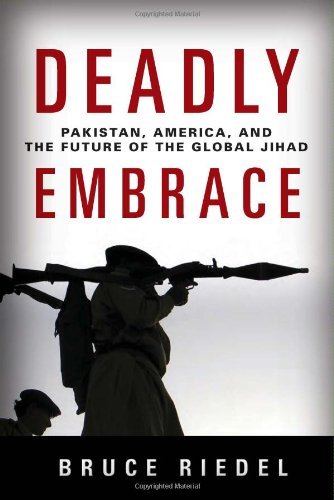In the first article of this series, the following was deemed self-evident:
- The majority in every society or country expects its religion, its culture, and its belief systems to be respected and supported by its government.
A corollary of this self-evident fact is:
- A regime that is seen, felt and recognized to be respectful and supportive of the majority religion tends in turn to be supported the majority of the people.
The events of the past 2-3 weeks demonstrate the truth of this corollary.
Does any one think Pakistan is richer than Egypt or Tunisia? Does anyone think that Pakistan provides its youth greater career opportunities than Egypt or Tunisia? Does any one think that Pakistan is less corrupt than Egypt? No.
Yet, we have not seen a single protest demonstration in Pakistan. And we have seen massive demonstrations in Tunisia and Egypt. The leader of Tunisia fled the country and his regime is in tatters. Yesterday, President Mubarak of Egypt announced his decision to step down in the face of huge protests in Cairo and Alexandria. Despite his 32-year reign, no one in Egypt has been willing to stand up in support of Mr. Mubarak. The Obama Administration and the Western European Governments have essentially dumped him.
The leaders of Tunisia and Egypt were and are secular men. They went out of their way to diminish the hold of religion on their people and they were ruthless against the proponents of the majority religion of their people. These leaders were the ones who created the education systems that educated the young men who have now risen against these leaders.
Look at the other regimes that seem to be trouble in the Middle East, Jordan, Bahrain, possibly Kuwait. These regimes, like Egypt & Tunisia, are generally secular; they have implemented western education systems and have discouraged overly strong influence of religion.
In each of these countries, the western educated segments are small and urban. The young “educated” people think of themselves as almost western and expect similar living standards. These “educated” youth are popular with American anchors who can interview them on American TV. They come across as just like young Americans or Europeans, young people who want the same things western young people want. It makes for lovely TV.
The Iranian students of 1978-1979 were just like these young people in Tunisia and Egypt. The Shah of Iran was like Ben-Ali of Tunisia and Mubarak of Egypt. He was dumped unceremoniously by his “bff” America and fled the country like Ben-Ali of Tunisia. Mubarak of Egypt seems made of sterner stuff and his fate is still unclear.
The Iranian Students that rioted in 2009 in Tehran were just like the Iranian Students of 1978-79, like Tunisian and Egyptian students we see today. But today’s Iranian regime is totally different. The Theocratic Regime in Iran has the support of the majority of Iranian people who are deeply conservative and religious. This is why the revolting Iranian students of 2009 received no support from the Iranian majority. This is why the Iranian regime could crush the revolt and tell the western world to bug off. And the Iranian regime won.
Today’s Pakistan is a basket case despite billions of dollars of U.S. aid. Actually Pakistan, a land with 170 million people, gets far less aid than does Egypt, a country of 80 million people. Yet, Pakistan has seen no riots about the price of bread, about the lack of jobs.
Is it because the Pakistani regime is as anti-secular as it can get? Is it because Pakistan’s religious establishment has a stake in supporting the regime, especially against American & European pressures? Is this why no American Anchor would dare to walk around Karachi, Lahore, Peshawar with a TV camera and crew to interview people in the streets? Is this lack of access to American TV another protective cover for the Pakistani regime?
President Mubarak’s Egyptian regime was a true loyal friend of America for 32 years. President Mubarak was the first to accept American Iraq, the first supporter of America’s War on Terror. President Obama chose Cairo, Egypt’s Capital, to deliver his major address to the world’s Muslims. Yet, the moment he became inconvenient, President Obama sent his envoy to Egypt to tell Mr. Mubarak to not seek an additional term.
In stark contrast, a U.S. Congressional delegation pleaded with Pakistan’s President Zardari to obtain a release of an American Diplomat who has been held in jail despite his diplomatic immunity. The Congressional delegation failed. And this is a Pakistani Government that is accused of being duplicitous and diverting American anti-terror aid to the Taleban, America’s enemies.
This is the difference between leaders/regimes that cultivate & placate the majority religion in their countries and leaders/regimes who scorn their majority religion under the banner of being “secular” and “modern”. Support of the majority gives the first set their power and immunity from America’s pressure. The second set! They get nothing from their majority because they gave the majority nothing.
How does this discussion relate to core India or US-India Relations? That is the topic for the next article.


 I abhor any doctrine, regime or society that chooses to call itself the “Land of the Pure” or Pak-i-Stan. Once you call your society the land of the Pure, you sort of undertake the obligation to rid your society of any impure elements. That is what successive land-of-the-pure regimes have done by trying to cleanse their societies of Hindus, Sikhs, Buddhists, and Ahmadiyya Muslims over a 60-year period.
I abhor any doctrine, regime or society that chooses to call itself the “Land of the Pure” or Pak-i-Stan. Once you call your society the land of the Pure, you sort of undertake the obligation to rid your society of any impure elements. That is what successive land-of-the-pure regimes have done by trying to cleanse their societies of Hindus, Sikhs, Buddhists, and Ahmadiyya Muslims over a 60-year period.